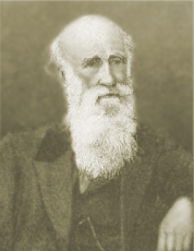The Flemish job market still shows a significant gap between immigrants and native Flemings, as one in every four Flemish job seekers is an immigrant. Among people with an immigrant origin unemployment is down by only 3% according to the Financieel Economische Tijd.
Only 7.2% of the labour force is currently seeking a job and it seems that men in particular have seen a growth in job prospects, with unemployment down to 6.6%. Unemployment among women stands at 8%, whereas job seekers younger than 25 saw a 10% drop in unemployment in August. Those in the age group 55+, however, have seen an increase in unemployment. Also the number of people who have been without a job for a short period has decreased considerably, as there has been a 16% drop in job seekers who have been relying on unemployment benefits for one to two years. Unfortunately those job seekers who have been unemployed for longer periods have seen no improvement and had even to contend with an increase of 0.7%.
Unemployment may fall, the number of bankruptcies doesn’t. The trade information office Graydon reports that 1.054 Belgian companies were liquidated during July and August this summer, showing a narrow increase of one case compared to last year. These bankruptcies will not immediately affect unemployment as they involve smaller businesses. Especially the hotel and catering industry, the courier services, road transport and the construction sector have been hit hard.
The American economist and Nobel laureate Eric Stark Maskin (1950) recognized with Leonid Hurwicz and Roger Myerson “for having laid the foundations of mechanism design theory plus having earned recognition in diverse areas of economic theory, such as game theory, the economics of incentives, and contract theory, could be interviewed by the Flemish paper. In addition to numerous journal articles and book chapters, he has edited a.o. “Planning, Shortage, and Transformation” (with A. Simonovits, MIT Press, 2000). Maskin considered Nash equilibria in games of complete information, but his results have been generalized to Bayesian Nash equilibria in games of incomplete information (see Postlewaite and Schmeidler, 1986, Palfrey and Srivastava, 1989, Mookherjee and Reichelstein, 1990, and Jackson, 1991).
I wonder how he would think about our Belgian situation, still not having a proper government. Because we can see clearly the terrible consequences of the ongoing debates and perhaps more a non- plurality rule and run-off voting without prospects. In the public framework, if the government knows at the outset which choice of public goods is optimal, then there is a simple – indeed, trivial – mechanism for achieving the optimum: the government has only to pass a law mandating this outcome. In Belgium we are stuck we a greedy government which does not want to come to reasonable terms to hold the marriage going of the Walloon and French sites.
I am so pleased to find a person who likes very much the same political-economical writers as I do Robert Owen and Charles Fourier which I adhere to. Though I do agree that their ideas like mine are very utopian, I am convinced that we should work on it to come closer to such a social system. In my life I had always problems with socialists, but could find my and the ideas of those writers more social then theirs.
We should be aware of the loopholes of the capitalist system which blinds a lot of people. In our capitalist system we should take care that we can consume enough but as human beings we should also be aware of our environment and of those people who are not as blessed as we can be. We can stay at the sideline repulsed by what we view as the evils of the burgeoning capitalist system or try to make the ends meet of joining parts of boths system together.
Trying to devide this small country is not going to solve everything, because we should grow more to a European Union taking care of central planning, replicating the performance of free markets. Lange and Lerner suggested that planning could correct serious “market failures” – notably those on display in the Great Depression – and thereby potentially surpass markets. The last few decades we do not have seen anything then one crisis or depression after another. On the other side, Friedrich von Hayek and Ludwig von Mises staunchly denied the possibility that a planned system could ever approach the success of the free market (von Hayek 1944 and von Mises 1920).
One of the big problems in Belgium is that it is really an artificial country in which there are some very greedy players who want everytime a bigger piece of the cake. May I wonder if it are not certain politicians who want a bigger share of those goods for themselves and their community? All here should think that a person’s gain may not be the second person’s loss . (A concept to be called the “Nash equilibrium.”)
According to Maskin when no two of them can agree that a given outcome is best: they cannot both get the biggest share. This means that, if there are three or more individuals, the hypothesis posited by the no veto power condition cannot be satisfied, and so logically the condition holds automatically.
A big burden is also the problem of the wrong focus of most of the people. Everybody apparently seems obsessed by the debts problem. Everybody focusses on savings. That is a capital fault. The relevant countries do not have the confidence and determination to solve the problems, U.S. and European economies may fall into long-term stagnation, and in Asia and the rise of Latin American countries at the same time into a decline. We should work to come to a government that shows courage and takes action to enable consumers, big business managers and financial market participants to regain confidence.
How to solve the debt problem in Europe, Nobel laureate stressed that politicians should have the confidence and determination. Maskin said: “The euro-zone countries to establish a unified financial system, as the European Central Bank to formulate a unified monetary policy, euro area will be perpetuated.” Scholes said: “The European Monetary Union has a central bank , but there are 17 independent finance minister, it does not work. “He suggested that the short term and the European Central Bank to lower interest rates further to buy government bonds.
In Belgium we do have to find a united governing organisation who does everything to gain confidence from the voters again and give the feeling back that everything goes well, so that people start consuming again. This trust in the system and in the future of this country shall give the consumers the mood to spend again, taking care shops shall find enough outlet and bring in enough vat and income taxes for the country.
I loved the beautiful Lindau this Summer and was taken by the good condition of those old houses. For me I do hope we do not have think as pessimistic as the 17 winners of the Nobel Prize for economics who were gathered there for the Nobel Laureate Meetings at Lindau, an island in Lake Constance. With their badges and small briefcases they also enjoyed the beautiful weather and the warm sun giving us new energy for a whole year.
The only problem is that here we got these wisest of men bringing us such bad tidings. Nobody can stay deaf for their interesting and important words of advice. They were brought together to discuss pressing world problems, are calling on political leaders to show courage and leadership so they can win back credibility in the eyes of consumers, business leaders and financial markets. Only confidence in the stability of the system can prompt an urgently needed reboot. The core issue, according to the laureates, is nothing less than the continued dominance of Western ideals that have shaped the world order since the Industrial Revolution.
The Federal president Christian Wulff said in the opening speech: “The future is in the hands of the young generation and we are currently, I am firmly convinced, at a very crucial juncture. At some point it will become clear to us how much our present actions or omissions will determine future decades.” but than those youngster do have to get the chances to be able to pay their studies and to live in a decent way. Anyway those we saw walking around seemed able to give me at least some good hope and nice expectations. Though not in the limelight of the media, next to the 17 Noble laureates, the 360 young researchers from all over the world who travelled to Lake Constance were the little sparkles. They reminded me of earlier times at other festivals were we were eager to follow everything and to share the many new ideas with others from all over the world. Time has come for them now to shape the future of the reformed markets.
It is the task of each and every one of us to ensure that the peace after thousands of years of war and conflict, a single internal market, prosperity, an area of freedom, democracy and justice, are safeguarded in the future and to square up to the major tasks facing us at this present time. “Our Europe has to be worth every effort to us. None of that can be taken for granted. Nothing can be squandered. Europe’s fate is in the end the fate of all its peoples. German and European interests are indivisible, two sides of the same coin. That’s why it’s so crucial to represent our common interests in a consistent manner. We Germans are aware of this responsibility in and for Europe.”
As Edmund Strother Phelps (1933), a Colombia University professor and director of Columbia’s Centre on Capitalism and Society which he founded with Roman Frydman in 2001, who won the prize in 2006 for his theory on growth, pointed out we still can have hope if we are willing to make turns. He says the West has to pay for the mistakes of the past, but if it can get back on track rapidly, recovery can start that much faster and the mistakes will take less of a toll. He considers the political system to be the greatest problem. In the United States, political parties are busy putting spokes in each others’ wheels, while leaders in Europe have managed to create a system of perverted incentives with banks and insurers having to hold government bonds and governments exceeding agreed-on debt ceilings. Phelps says politicians need to show both more courage and a greater sense of responsibility, facing the fact that they are going to have to be the bearers of bad news — such as tax hikes — to their citizens.
Sir James Alexander Mirrlees (1936) Scottish economist and winner of the 1996 Nobel Memorial Prize in Economic Sciences, rates the chances that the Western world will be facing a long period of stagnation as “very high.” Myron Scholes agrees, adding that both the United States and Europe are looking at a fate similar to Japan’s lost decade if the present muddling continues.

John Nash
It is not the first time that we do have to hear that credibility and decisiveness are the essence to solve the European debt crisis. The ‘after war winner’ Germany has a pivotal role. Laureates Daniel McFadden (1937) an econometrician who shared the 2000 Nobel Memorial Prize in Economic Sciences with James Heckman, and John Nash (1928) believe the future of the Euro zone is mainly dependent on Germany, and that Germany should understand that such a zone is in its interests. Maskin says that the Euro zone only stands a chance of long-term survival if a central fiscal system is introduced, while financial market expert Scholes is more optimistic about the zone’s chances of holding together, though not in its present configuration. A currency union with a central bank and 17 independently acting finance ministers cannot survive, he argues. Taxation would need to be centralized, transfers made possible, and in the short term, the European Central Bank should lower bank rates and continue to buy government bonds.
It is to late to wonder how it could come that such poor countries could enter the Eurozone. But one of the reasons I mentioned already before is the greediness of our politicians and system. According to the Noble Laureate McFadden the weaker members would need to be removed, and in the longer term, Europe will have to build up a stable fiscal system that makes effective control possible. Nash, known to many through the film “A Beautiful Mind,” says: “Where there’s a will, there’s a way.” The Euro zone stands a chance, he says, if all club members work really hard to keep it together.
In one respect, the laureates feel that a decline of the West is already sealed: regardless of all and any political decisions that may be taken, the dominance of the dollar as the world’s reserve currency will fade. Its leading role will decline progressively over the coming decades.
~~~~
Read also in Dutch:
- About the economical situation in Belgium at the moment, the article in Dutch: Werkloosheid daalt, faillissementen blijven hoog
- ‘We geven de strijd tegen werkloosheid te snel op’; Nobelprijswinnaar Eric Maskin beveelt een stevige dosis overheidsuitgaven aan

Eric Maskin, heftig: 'Het is de morele verantwoordelijkheid van overheden de recessieperiode zo kort mogelijk te houden.'
‘Velen vinden dat we de marktwerking moeten laten spelen en de recessie moeten uitzitten. We zien de gevolgen van die strategie nog altijd in Japan, al 20 jaar lang. Is het dat wat we willen? Daarmee leggen we een vreselijke last op de zwakste groep in onze maatschappij. (De wijsvinger gaat nog hoger.) Het is de morele verantwoordelijkheid van overheden de recessieperiode zo kort mogelijk te houden.’
+
In English:
Related articles
- Nobel conclusions (economicsintelligence.com)
The conference perpetuated the popular prejudice that economics are unworldly and get lost in arcane theories. As the old joke goes:“Economists do it with models.”
This is true, but it is not the whole picture. The profession has much more to offer than boring lectures by nobel laureates. Modern economists live and work in the here and now. They use experiments, field studies and meticulously analyse real world data. If it concerns a more stable financial system, the fight against poverty or better school, economic journals are full of really relevant and fascinating research.
Next to the 17 Noble laureates, 360 young researcher from all over the world travelled to Lake Constance. They were not in the limelight of the media but those guys are shaping the future of the profession.
- Opening speech at the 4th Lindau Nobel Laureate Meeting in Economic Sciences
It’s a wonderful picture I’m seeing from up here: in the front rows, young people, the future, and in the rows further behind, the present. But a little while ago a baby was crying at the back there, so you young people here at the front could hear that the next generation is already making its presence felt. But it is you who will be crucial in the next 20 or 30 years, and great expectations are being placed in you. - Nobel Laureate: The debt crisis is the major issues facing the Western systemNobel laureate in economics that a number of European sovereign debt crisis of the entire Western system is facing a major problem, the relevant country does not have the confidence and determination to solve the problem, U.S. and European economies may fall into long-term stagnation, and in Asia and the rise of Latin American countries at the same time into a decline.Nobel Laureate is the German “Welt” at the Fourth Conference of Nobel laureate in economics, a survey conducted before the convening of the proposed ideas. The conference will be held from 23 to 27, held in Lindau, Germany, a total of 18 Nobel Prize winners to participate.Nobel Laureate said the West’s decline and possible collapse of the euro area should be responsible for policy failures. They called on the government to show courage and take action to enable consumers, big business managers and financial market participants regain confidence.
- 450 days after the election there’s still no government in Belgium (independent.co.uk)
Just three underground stops from Brussels’ idle government complex, the headquarters of the European Union watches Belgium with unease but says publicly it retains “full confidence” in the nation’s ability to enact finance reforms.However, already a 10 September deadline for government negotiators to set a draft budget for 2012 has slipped to 30 September.The most accute problem in the government talks is the fate of a bilingual Brussels-area voting district that spills into Dutch-speaking Flanders. It was ruled illegal by a court in 2003 as only the city of Brussels is officially bilingual.Francophones oppose a breakup so as not to lose Francophone voters who have moved to Brussels’ Dutch-speaking suburbs. - 450 days after election, still no govt in Belgium (seattletimes.nwsource.com)
Europe’s financial crisis and feeble economic growth may scare governments from the Arctic Circle to the Mediterranean Sea, but in Belgium it is a sideshow. Talks on a new Belgian government, which have been going on since the June 13, 2010 election, were at a standstill Monday for a third day running.After 15 months of impasse, most Belgians seem resigned to Leterme’s government of Christian Democrats, Liberals and Socialists staying on as a “caretaker” cabinet handling routine business.Piet Van den Bon, a Labor Court justice, claimed that illegal immigrants were pocketing undeserved handouts – a situation that “feeds a growing sense of injustice. The population expects from a government, especially in times of crisis, a readiness to act.” - This Time Will Governments And Central Bankers Bail Out Bondholders And Banks, Or The Public At Large? (businessinsider.com)
Presently, the global economy is in a low-level Nash equilibrium where consumers are reluctant to spend because corporations are reluctant to hire; while corporations are reluctant to hire because consumers are reluctant to spend. Unfortunately, simply offering consumers some tax relief, or trying to create hiring incentives in a vacuum, will not change this equilibrium because it does not address the underlying problem. Consumers are reluctant to spend because they continue to be overburdened by debt, with a significant proportion of mortgages underwater, fiscal policy that leans toward austerity, and monetary policy that distorts financial markets in a way that encourages further misallocation of capital while at the same time starving savers of any interest earnings at all.



































 Biblestudents – Bijbelstudenten
Biblestudents – Bijbelstudenten 0 + Bloggers for Peace
0 + Bloggers for Peace Free Christadelphian Ecclesia
Free Christadelphian Ecclesia Hoop tot Leven – Redding in Christus
Hoop tot Leven – Redding in Christus Vrije Broeders in Christus (Free Flemish Christadelphians on Wordpress)
Vrije Broeders in Christus (Free Flemish Christadelphians on Wordpress)















Pingback: Aandeelhouders op de boot in de woelige storm | Marcus' Space
Euro crisis requires market solution
By Lee Robinson
Ultimately the euro crisis remains a pressure cooker building up steam despite the protestations of the currency system being saved by multiple political interventions. Yet after a half dozen supranational attempts to instil order within the sovereign nations of the EU, the markets are clearly not listening. Instead a market solution is now needed.
Many commentators have been suggesting a eurobond as the answer to Europe’s problems. However, given that Germany has so far rejected this option, the alternative needs to be a simple programme that rewards prudent debt levels, while providing a space for errant sovereign states to reorganise their finances.
Continue reading: Financial Times article.
LikeLike
Pingback: Capitalism downfall | Marcus' s Space
Pingback: Do we have to be an anarchist to react | Marcus' s Space
Pingback: History.com: This Day In History (January 04-1999): The euro debuts – Some View on the World